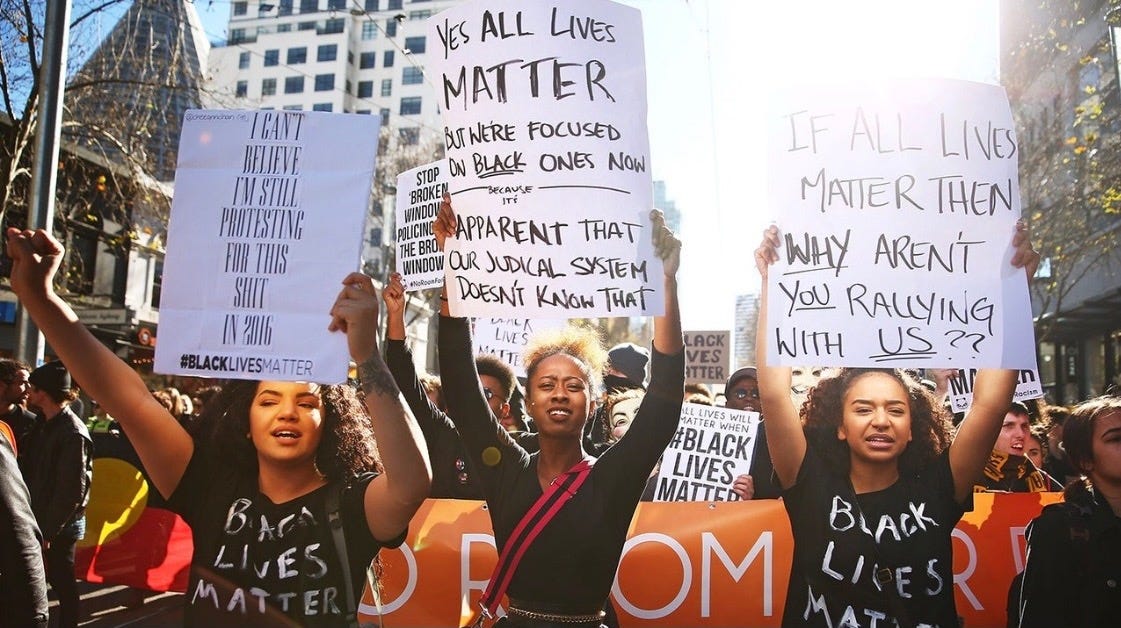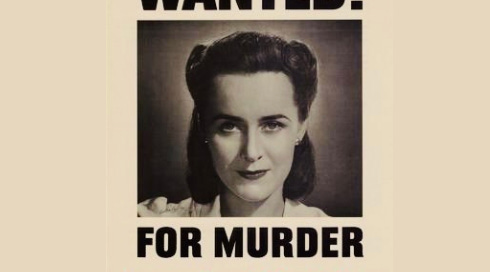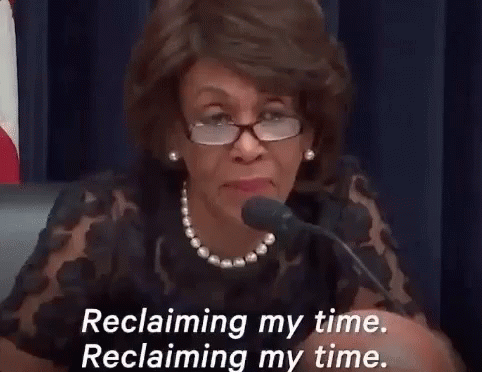The Quiet Violence of Stealing Women’s Time
On Weinstein’s overturned conviction and the time we lose to systems of oppression.

Last week, Harvey Weinstein’s historic rape conviction was overturned by the New York Court of Appeals. The reason for the decision was, essentially, that too many women had been allowed to share their stories as testimony during the trial. Go ahead and reread that sentence. When I read that, I laughed, audibly, like you would at a joke so poorly written you almost admire the audacity of it. (Mariska Hargitay felt the same way.) Of course this would happen now. In an era where the Supreme Court is hearing arguments on how many organs would need to be removed from a pregnant woman’s body before doctors can perform a life-saving abortion; where Greta Gerwig can write and direct one of the highest-grossing films of all time, receive scores of critical acclaim for it, and still not be deemed worthy enough to receive an Oscar nomination for best director; where the rate of femicide and gender-based violence increased at astonishing rates worldwide; where a man who was found liable for sexual abuse can run for president of the United States, again, and just might win.
After I laughed at the news that Weinstein’s conviction was being overturned—because, sure, too many ladies and their annoying stories!—I texted my friend, New York Times reporter Jodi Kantor, who, along with Megan Twohey, broke the story of Weinstein’s abuse in 2017 that led to his eventual arrest. My text was just one word: “Wow.” It’s all I had to say, all I could say. “Wow,” not as in, “I’m shocked” (because nothing about any of this is shocking anymore), but “Wow,” like you would say when something is so bad, so awful, so fucked up, that you are actually impressed. The kind of wow that is said in awe, in awe of the systemic cruelty of this country. A cruelty which seems to have no bounds, no guardrails, no end. Jodi wrote back, “Want to talk?”
I spoke to Jodi and many other women that day; the news had fully consumed me and everyone I knew. I began to boil with a kind of anger I had not felt since 2017’s #MeToo Movement (originally founded by activist Tarana Burke back in 2006). This anger was, of course, not just about the verdict being overturned, but the totality of it all: everything mentioned above and everything else that’s gone unmentioned. Everything that came to light and everything that still lives in the shadows. After I spoke to Jodi, I reached out to activist and actress Ashley Judd who was one of the first women to publicly accuse Weinstein and whose life work as an advocate, educator, and feminist I deeply admire. On the day the news broke, Ashley, along with many other women including Tarana and Fatima Goss Graves, the CEO of the National Women’s Law Center, held a press conference. I was struck by what Ashley described as “institutional betrayal” and how sexual violence is such a thief of our time, energy, and mental health.
Two days later, Ashley and I met up in person for a coffee. We wanted to catch up as old friends but most of our conversation ended up revolving around this institutional thievery of our existence, our joy, our peace. We agreed one thing was really clear from all this: the patriarchal systems and those that uphold them are, among other things, experts at stealing our time. That, in and of itself, is a form of violence we don’t talk nearly enough about. Oppressive people and the systems they empower force themselves constantly into our conversations and day-to-day life and work because we as women can’t afford not to talk about them or do something about them. Take this essay as a perfect example: I wanted to write and reflect on turning forty last year in my birth month of May, and instead I’m writing about a serial sexual predator movie mogul whose name I never thought I’d have to utter again.
Years ago, during a beleaguered congressional hearing, Representative Maxine Waters told Treasury Secretary Steven Mnuchin, “Reclaiming my time” after his attempt to stall the process—and his answer to her question—with strategic and irrelevant niceties. The phrase rippled through communities of women all over the globe who have had to deal with their own Stevens. It became not just a famous meme on the Internet, but a new and important way of thinking about the fight for our energy and what we are forced to use it on.
Women are so used to being robbed of our time, whether it's fighting for our rights, our voices, or our dignity. We have normalized the deficit of our energy as just a way of life nowadays. It’s part of what the political right is so good at: bombarding the progressive left, especially its women, with so many moral offenses to fight back against that we’re left feeling like we’re playing tennis against Andre Agassi with one hundred balls at once and no racket of our own. Two steps forward and two hundred steps back. They saw our progressive, Black president, and raised us a racist, sexist, bigoted, dictator-in-training who undid decades upon decades of progress in just four short years.
Women must carry all the invisible burdens of our society as well, and are expected to count that as a blessing of American freedom instead of what it really is: another leach on our time. Women are far more likely than men to experience chronic pain and invisible illnesses. Problems that impact women, trans men, and many in the LGBTQ+ community seeking gender-affirming care and basic healthcare support are often pushed to the side entirely which stems from a lack of research and bias in our health and happiness. (I wrote fairly extensively about this in my 2018 memoir, Era of Ignition: Coming of Age in a Time of Rage and Revolution.) Women are tasked with the responsibility of finding holistic practitioners and alternative answers, of using our time to be researchers for our own doctors, turning our healthcare into a full-time job in which we not only do not get paid, but go broke from. I could go on about the lack of universal childcare, insufficient paid family leave policies, and so many other ways in which women’s time is stolen from them.
So many amazing women writers I know have now had to pivot their creative work to fully address these oppressive systems and draconian laws. It seems there is never even a fraction of a moment where we can rest or have peace from settled law, settled public opinion—settled anything as it pertains to us, our bodies, and our lives. Author and journalist Jessica Valenti had to turn her popular newsletter, It’s All In Your Head, into a full-time, round the clock abortion news watchdog called Abortion, Every Day after Roe was overturned. And Jessica isn’t the only one. There are countless writers, artists, policy experts, lawyers, and so many others across industries whose time, energy, and creativity have been completely rerouted and occupied with the never-ending, merciless fight for our rights and safety.
I believe there will never be an end to this time of theft of our time, but we can work together and support one another as we reclaim what we can, when we can. We’re in an extremely consequential election year, fighting for our lives, the life of the planet, and the life of this country, which feels like it’s been on life support. In the bleakest moments, I worry that we won’t have it in us to keep fighting, to keep going in the way we have had to while feeling like our time is running out. We just don’t have many more knock-down-drag-outs to give.
I know that this is just the fatigue talking though. This exhaustion, a rightful and natural reaction. The real peace for us might just be in making peace with knowing this is part of our life’s work, just as it was for all the women who came before us, and just as it will be for all those who will come after us. After all, this fight is nothing new; marginalized communities have been in a ceaseless battle for their health and safety—with literal life and death consequences—since the country was founded. At times, it will get better. At times, worse, as it feels now. The reclamation of time—our time—can help us through. The peace we choose to make with our struggle—this struggle—can have its rewards, if we design it that way.

The reclamation of our time can look like the assessing and reassembling of our priorities. It can be the reframing of our relationships as emotional contracts we may have signed years ago with people we love but which might be in need of renegotiations—relationships with peers, family members (both the ones we care for deeply and the ones we feel obligated to), friends, and our communities. It can look like showing up in healthier online spaces more frequently—spaces where we can lean on each other instead of the compare-and-despair models of Instagram and X. It can be forming small groups with like-minded friends and community members to brainstorm more sustainable ways to show up, both for our own mental health and to keep fighting this fight we must make peace with at the same time.
For every letter you write to a politician, every petition you sign, every protest you show up to, you will seek for yourself—no, demand for yourself—times of restoration and balance to refuel you. Toss in some meditation with your doomscrolling routine, read a good book instead of the news, or allow yourself to watch that episode of The Real Housewives, because you do, actually, deserve it. It could look like having a hard talk with yourself about the way you eat, how much alcohol you drink, how hard you are on yourself.
The reclamation of time—not just women’s time, but the time of anyone who has given theirs up to fight for a basic human right—can be a powerful antidote to feeling used and depleted.
What are some ways you will reclaim your own time this year? What are some ways you will show up and fight? Are there any resources you’ve found or practices you’ve developed to help balance the need for political engagement with personal restoration? Please share in the comments!
Speaking of time, I wanted to send you a short note from me and our managing editor, Aly. We spend many joyous but hardworking hours working to make this online space a community we hope feels exciting, understanding, and creatively fruitful. We love what we’ve created together with you, and now that we’re almost a year and a half old (can you believe it?!) we’re hoping we can get to a place where the newsletter and the creation of all its content are fully sustainable so we can keep doing this for a long time. We’re not there yet, but I hope we can and will be. If you’ve been enjoying the content and the community here at LITD and have the means to do so, we’d like to ask you to consider upgrading to a paid subscription, gifting a subscription to a friend or loved one, or sharing your favorite post of ours with a friend or your online community. We love you and are grateful you are here, however you show up.
Love,
Amber + Aly
Coming up!
Good Riddance: Join us in the Chat for a weekly space to let go of something that’s been bugging you. Every Saturday, I’ll share something I’m letting go of and invite you to do the same. It can be big or small, serious or silly—an interaction that left you feeling not so great, a piece of clothing you’ve been hanging on to for too long, or your anger over a tragically canceled TV show that ended on a cliffhanger. For All Subscribers.
Further Ado: 2024 guests for our video interview series include Dr. Ayana Elizabeth Johnson, Suleika Jaouad, Eliza Clark, and many more to be announced. For Paid Subscribers.
Readings + Prompts: A couple times a month, I'll share a new video made just for you reading something I've written over the years—a poem, an essay, an unpublished work (GULP)—as well as a unique prompt based on that work. Come get entertained and creatively energized. For Paid Subscribers.
Here, Take This, I Love You: Every month we will give away memorabilia and artifacts from the vaults of my office. A signed Joan of Arcadia script! Limited edition broadsides of poetry! Some gum Alexis Bledel once chewed! (I would never.) For Paid Subscribers






This is a powerful read Amber, and I feel your passion for justice and your exhaustion at moving 2 steps forward and 1,000 back. It's enraging, and it's inhumane. For me, the most infuriating battle plan of this war on women is the acceptance of rape culture, where women and girls are taught to behave in a way that does not "encourage" violence against them (us). It's not only victim blaming, it infantilizes men by perpetuating the fallacy that men and boys cannot control their sexual urges.
If they are so ape-like, why do they get the codes to our nuclear warheads? Why are they allowed to become doctors, lawyers, mechanics or plumbers? It's offensive. Maybe there needs to be a national program that all tween and teen boys have to go through to show they are ready to enter a civil society? That's the message we are promoting when we accept that men are inherently violent towards women; so, ladies it's your own fault if you haven't gone through the national training on how to dress, where to walk, how to speak, how to never say no to a man, because if you do what did you think would happen? Wasn't it obvious you would get punched in the face? - true story in NYC.
I seek to regain some of my time reading, writing and being mindful of inclusivity given the agency I have as a cis white woman in America. This is where I have a gentle ask of you, Amber; would you please reconsider this sentence, "Problems that impact only those of us with uteruses are often pushed to the side entirely which stems from a lack of research (and interest) in our health and happiness." I don't think you meant to exclude trans women and women who've had hysterectomies, but by making uteruses the organ which defines being a woman it feels unnecessarily exclusionary. Thank you.
I am 65 yo women who JUST realized last week that the reason I am claustrophobic is because of my rape at 14 (lost my virginity). Being in metal van with three men who'd removed the inside door handles. My rage is beyond considering the waste of time. I cannot be in a vehicle with anyone who shows the least bit of anger or aggression (i.e. even minor road rage). I cannot have a heated argument or discussion in a vehicle, heck I can't even sleep in a tiny camper! I completely shut down. How is it that it took 51 years for me to connect those dots? I've gone over this event again and again in therapy, talked about it at V Day events, relived it, screamed at my attacker and yet, those deep deep memories remain. I thought I had reclaimed that time, worked through that anger, the blaming, the shame but ah looky here! It is STILL taking my time! E V E R Y story of a sister having their trauma reduced because it is "just too much for them to hear about" makes me want to get a GD megaphone.